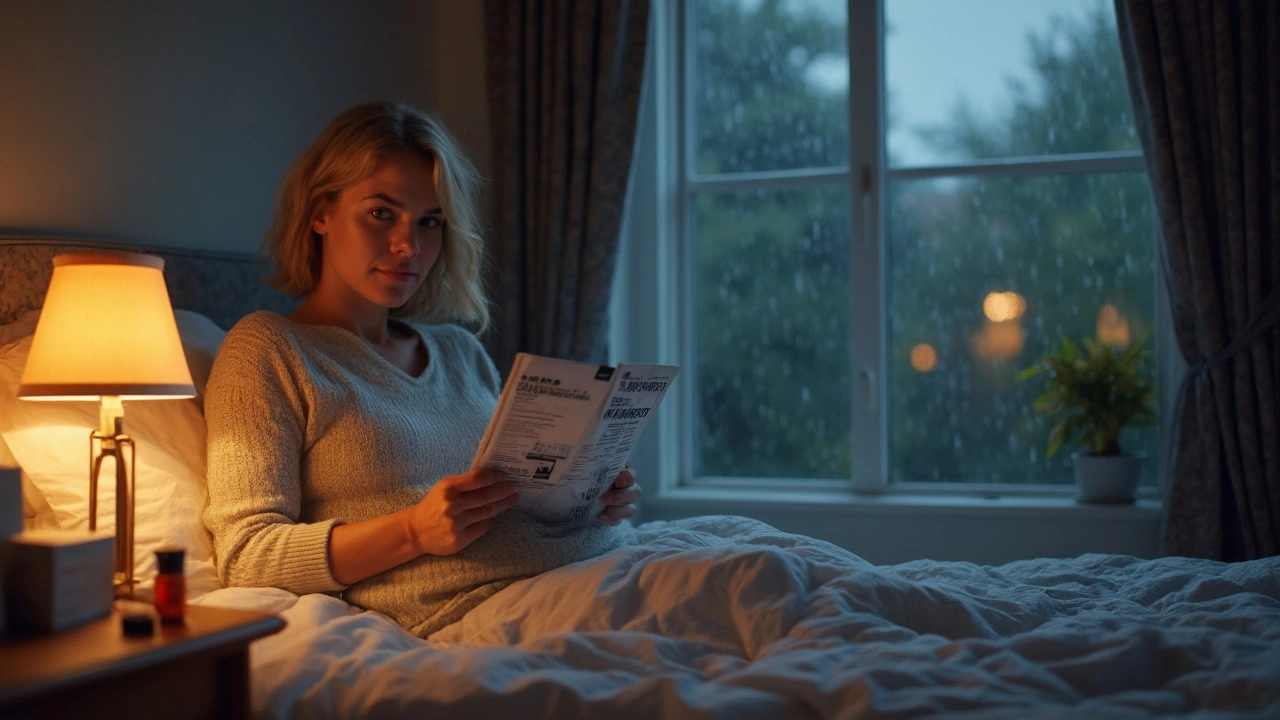Insomnia: Simple, Practical Steps to Sleep Better Tonight
Roughly one in three adults has trouble falling or staying asleep. If you’re awake at 2 a.m. scrolling your phone, that stat explains a lot. This page gives clear, useful steps you can try tonight, plus safe natural options and quick links to deeper reads on specific remedies.
Quick things to try tonight
Start with small changes that actually work. Keep your bedroom cool and dark. Turn off screens 30–60 minutes before bed — blue light tricks your brain into thinking it’s daytime. Set a simple wind-down routine: dim lights, calm music or reading, and the same bedtime every night. If you can’t fall asleep after 20 minutes, get up and do a quiet activity until you feel sleepy again.
Watch what you eat and drink in the evening. Avoid caffeine after early afternoon and skip heavy meals right before bed. Alcohol might help you nod off fast but disrupts sleep later, so it’s not a fix. Light exercise earlier in the day helps, but avoid intense workouts within two hours of bedtime.
Safe supplements and natural aids (what to try and what to avoid)
If behavioral steps aren’t enough, some people use supplements or calming herbs. Ashwagandha and clary sage are often mentioned for stress relief and better sleep. Read our practical guides before trying anything: Ashwagandha: Benefits, Uses, Side Effects & How To Take It Safely, and Clary Sage: Why Clary Sage Is the Ultimate Supplement for Natural Holistic Health. Those pages explain doses, possible side effects, and who should avoid them.
Melatonin can help shift sleep timing (useful for jet lag or shift work) but isn’t a long-term cure for chronic insomnia. Valerian or chamomile are gentle options; they can be calming for some people but aren’t guaranteed. Always check interactions with other meds — if you take prescriptions, ask your doctor before starting anything new.
Want step-by-step ideas? Try a two-week sleep trial: follow a strict bedtime routine, ditch screens before bed, avoid caffeine after lunch, and try one mild supplement if needed (follow guidance on the linked pages). Track your sleep each morning — note time to fall asleep, how often you wake up, and how you feel the next day. That record helps a clinician if you need one.
When should you see a doctor? If insomnia lasts longer than three weeks, you feel sleepy during the day, have mood changes, or suspect an underlying issue (like sleep apnea, restless legs, or medication side effects), make an appointment. For safe, evidence-based guidance, start with your primary care doctor or a sleep clinic.
Want more focused reads? Check these posts tagged for insomnia: Ashwagandha guide, Clary sage benefits, and Yerba mansa for energy and immunity (helps when fatigue from poor sleep is an issue). Try simple changes first, track what helps, and get professional help if sleep keeps getting in the way of your life.
- April 16, 2025
- Comments 6
- Medications and Supplements

